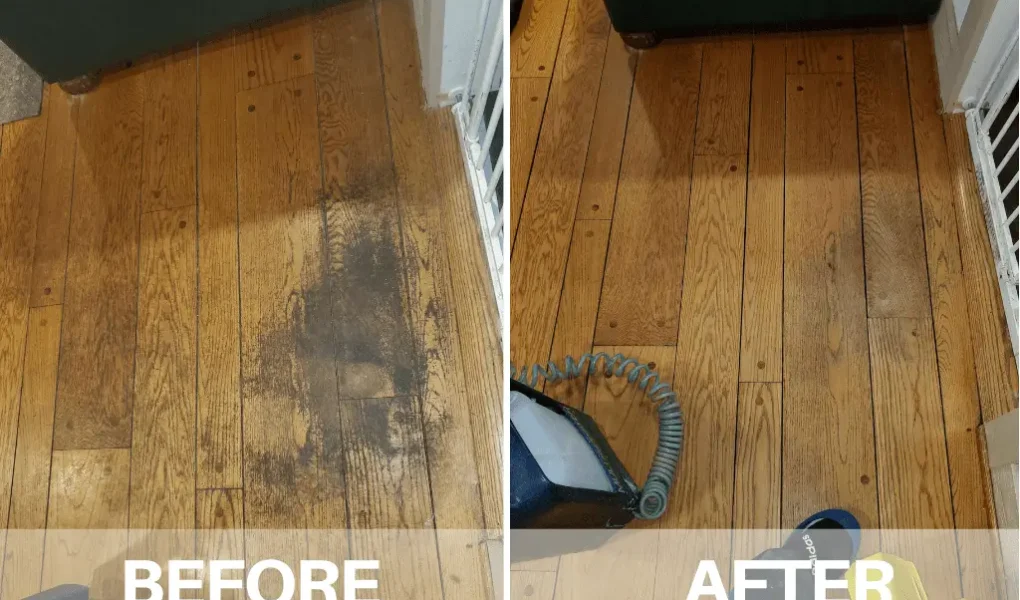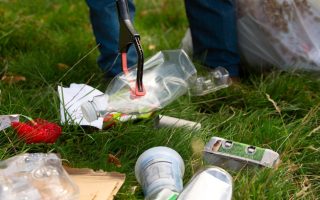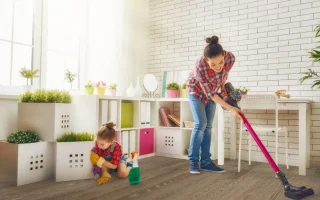If you’ve ever Googled a natural way to clean your hardwood floors, chances are vinegar was one of the top suggestions. But while vinegar is known as a powerful natural disinfectant, many homeowners are left wondering—can you use vinegar on hardwood floors without causing damage? Let’s break it down with expert insights, real experience, and a closer look at how vinegar interacts with wood.
Why Vinegar Is a Go-To for Cleaning
Vinegar, specifically white distilled vinegar, contains acetic acid, which gives it that punchy smell and potent cleaning power. It’s long been praised for being eco-friendly, inexpensive, and effective at removing dirt, grime, and bacteria from surfaces. Plus, when paired with essential oils or a microfiber mop, it can leave your home smelling fresh and looking clean.
But when it comes to hardwood floors, things aren’t so black and white.
The Chemistry of Vinegar and Wood
Hardwood floors, especially those with a polyurethane finish, are vulnerable to acidic solutions. Acetic acid in vinegar can slowly eat away at the protective layer on sealed floors. Over time, this can lead to floor finish degradation, dullness, and even permanent moisture damage if too much liquid seeps into the seams.
According to Brett Miller, VP of Technical Standards at the National Wood Flooring Association (NWFA), “Using vinegar and water to clean hardwood floors may seem harmless, but over time, it can erode the finish and void manufacturer warranties”.
Cleaning Hardwood Floors with Vinegar: Is It Ever Okay?
Yes—cleaning hardwood floors with vinegar can be okay if it’s done correctly and in moderation. The key is to use a diluted vinegar solution. A commonly recommended mix is half a cup of vinegar to a gallon of warm water. This creates a gentler mixture that reduces acidity and minimizes the risk of dulling the finish.
Still, it’s best to use this sparingly. Frequent use may lead to cupping, a form of moisture damage where the edges of floorboards rise higher than the center.
Vinegar and Water Solution for Wood Floors: Recipe and Caution
Here’s a simple DIY wood floor cleaning solution that many homeowners use:
-
½ cup white vinegar
-
1 gallon warm water
-
Optional: a few drops of lemon essential oil
-
Use a microfiber mop, wrung out thoroughly
Make sure the mop is damp—not wet—to avoid excess water on your floors. That small step can prevent long-term issues like floor cupping or warping.
Is Vinegar Safe for Hardwood Floors with a Polyurethane Finish?
This is where many homeowners get tripped up. If your floors are sealed with a modern polyurethane finish, vinegar may not cause immediate harm, but over time, it can strip that sealant. That’s why many manufacturers and installers recommend using a pH-neutral cleaner instead.
Tip: Always test in an inconspicuous corner before using any cleaner—natural or not—on the whole floor.
Vinegar Damage to Wood Floor Finish: Real Cases
A homeowner from New Jersey shared her experience on a local forum: “I used vinegar and water for years and couldn’t figure out why my floors looked dull. When we finally had a professional refinisher in, he said the vinegar damage to the wood floor finish was the cause.”
That dull, lifeless look is a common sign of finish degradation, and it’s often blamed on regular exposure to acidic cleaning agents like vinegar.
Alternatives to Vinegar for Wood Floors
If you’re worried about vinegar, you’re not alone. Thankfully, there are safe alternatives:
-
pH-neutral cleaners formulated specifically for hardwood
-
Store-bought eco-friendly cleaning products
-
DIY floor cleaner using castile soap and water
Avoid using steam cleaners, ammonia, or anything that leaves excess water behind.
Homemade Hardwood Floor Cleaner: Better Options
While vinegar gets a lot of attention, other homemade hardwood floor cleaner options are just as easy to make and even gentler. Try mixing:
-
1 teaspoon mild dish soap
-
1 gallon warm water
-
Optional: 5-6 drops of essential oils like lavender or tea tree
Again, use a microfiber mop and avoid saturating the floor.
Vinegar and Dish Soap Floor Cleaner: Double Trouble?
Some DIY cleaning recipes combine vinegar and dish soap. While it may boost grease-cutting power, this combo can leave a filmy residue on hardwood if not rinsed well. And since you shouldn’t flood hardwood floors with water, rinsing thoroughly isn’t always easy.
It’s safer to choose one approach—either a very diluted vinegar solution or a soapy water mix, but not both.
How to Clean Sealed Hardwood Floors the Right Way
If your hardwood is sealed, stick to the basics:
-
Vacuum or sweep daily to avoid scratching.
-
Use a pH-neutral cleaner weekly or bi-weekly.
-
Spot-clean with diluted vinegar occasionally—never soak.
This method protects both the wood and the finish while keeping your floors looking fresh.
Best Natural Cleaner for Wood Floors: Is It Vinegar?
While vinegar is widely used, many experts argue it’s not the best natural cleaner for wood floors due to its acidity. Products like Bona or Method’s wood floor cleaners are pH-balanced and designed specifically for hardwood surfaces.
That said, for occasional cleaning and spot removal, vinegar can be a handy tool—if you’re careful.
Does Vinegar Dull Hardwood Floors?
Yes, it can. Regular use of even diluted vinegar can gradually remove the luster from hardwood, especially if it’s unsealed or the finish is already worn. You may not notice it at first, but over time, the shine fades.
A case study from a flooring refinishing company in Oregon found that 65% of their refinish jobs came from floors treated long-term with vinegar solutions.
Final Thoughts: So, Can You Use Vinegar on Hardwood Floors?
Yes, but with caution. Can you use vinegar on hardwood floors? Absolutely—if it’s diluted, used infrequently, and only on sealed wood. But relying on vinegar regularly can result in dullness, finish degradation, and even moisture damage over time.
If you’re looking for a safe everyday solution, opt for a pH-neutral cleaner, and save vinegar for the occasional deep-clean.
Quick Recap:
-
Diluted vinegar and water can work in a pinch—just don’t overdo it.
-
Avoid using vinegar on unsealed or waxed floors.
-
For long-term care, choose products designed specifically for hardwood.
-
Always use a microfiber mop, not a soaked one.
For a safe and shiny home, balance is key—natural cleaners like vinegar are effective but need to be used wisely to avoid damage to your beautiful hardwood floors.




